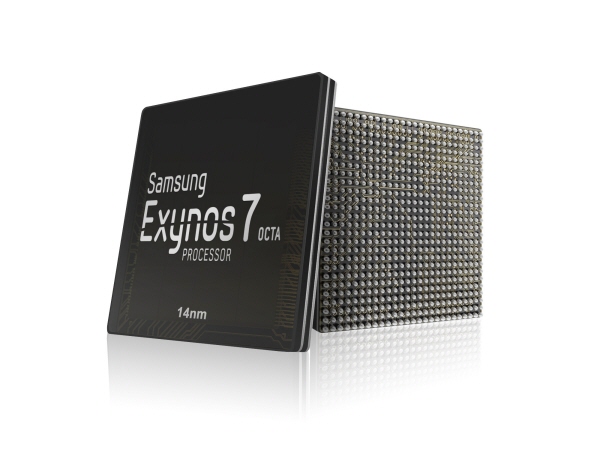Samsung is all a good on the mobile chipset front, and we are expecting the release the Galaxy S6 supporting a the companies own 14nm Exynos 7420 processor, which it expects to “positively impact the growth of the mobile industry by enabling further performance improvements for cutting-edge smartphones.”
FinFET is a technology that increases the silicon die density through the use of three-dimensional transistors that rise above the planar substrate. This technology is already implemented by AMD, IBM, Intel, and others in their own chips.
Samsung will now take the mobile chip fight directly to Qualcomm and their SnapDragon range of processors, with the 74xx series based on four Cortex-A57 + cores and four Cortex-A53 cores implemented in ARM’s big.LITTLE design scheme. The Graphical Processing Unit (GPU) is likely to either be a ARM Mali-T760 or the newer Mali-T800.
When compared to Samsung’s own 20nm technology, the Exynos 7420 processor is expected to perform 20 percent faster in speed, and also offer 35 percent less power consumption. And what about the future? Samsung’s Kinam Kim has confirmed at the ISSCC conference: “there are no fundamental difficulties until 5nm,” he said. Apparently there are also plans for 3.25nm in the future.



















